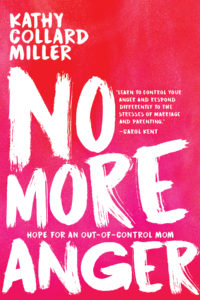If You Can't Be Kind, Be Quiet
Author Deb DeArmond focuses on strengthening relationship. In this Communication UPGRADE, she suggests we check our words before they cause damage.
 "Did you know each year there is a National Say Something Nice Day? It was new to me," Deb says, "and made me think of my mama. It would have made her happy."
"Did you know each year there is a National Say Something Nice Day? It was new to me," Deb says, "and made me think of my mama. It would have made her happy."
My (Dawn's) mom knew I was a "word person." Perhaps that's why she often encouraged me to be careful how I used words. It sounds like Deb's mom was a lot like mine!
Deb continues . . .
Mama often shared her belief that “If you can’t say something nice, say nothing at all.” It wasn’t just a slogan; she lived it every day.
I never heard her say a mean or critical word about a single person, with the exception of her second cousin Hattie, who deserved it according to Mama.
“That girl had a mean streak.”
She once bit my mother hard enough to draw blood, so I think it’s a valid observation. But with this one exception, Mom was a gentle and generous soul.
She looked for the goodness in every person and as a result, she almost always found it.
Easier said than done.
If you have family, you already know this can be tough duty. Especially in the face of what we often call at my house, “an intense moment of fellowship.”
If you overheard the discussion, you might think we’re engaged in an argument. Some may claim it’s a matter of semantics since the two are quite similar. We prefer to position it in a more friendly way.
Definition aside, when it gets heated, something nice is not always the first phrase that occurs to us or rolls off the tongue.
And the tongue is often the problem with conflict, isn’t it?
The scripture gives us that heads up:
Indeed, we all make many mistakes. For if we could control our tongues, we would be perfect and could also control ourselves in every other way (James 3:2 NLT).
Every other way?
You mean, if I could manage my mouth, I’d also be able to resist the call of Cappuccino ice cream? Now there’s some motivation!
Over the years, I’ve become aware of the need to be more intentional, more grace-filled, when conflict arises.
God's Spirit has been persistent to point out missed opportunities, little slips, and major mishaps of the mouth.
Gentle words are a tree of life; a deceitful tongue crushes the spirit (Proverbs 15:4 NLT).
I’m working on it.
Just remember, we do have an enemy—but our friends or loved ones are not our adversary.
God expects us to speak the truth in love when we’d prefer to give someone a piece of our mind.
Making our point cannot be more important than making our Heavenly Father happy.
Today, identify an opportunity to say something nice. Find something genuine, not manufactured, and smile when you say it.
If you want to make a super-powerful positive impression—write it down. Slip a note in his pocket, the kids’ lunchbox, or tuck a card in her purse.
A discovery of a compliment or acknowledgement is a prize, and when it’s unexpected, it’s so much sweeter. It just might make your someone’s day.
And it will make your mama so proud!
Take a quick inventory
Be honest with yourself.
- How often do you walk away regretful of a harsh or unkind word you’ve spoken? What pulls you into that behavior?
- How are relationships impacted when the communication—and your best intentions—get away from you?
- Identify one strategy to remind you to be quiet if you're struggling to be kind—perhaps a simple prayer or scripture before a conversation that might be difficult.
We can't fix what we don't acknowledge. Enhance your self-awareness and use your answers to set a new course!
Proverbs 15:4 reminds us,
Gentle words are a tree of life; a deceitful tongue crushes the spirit (NLT).
If you can't be kind, be quiet.
What is the strategy you identified to remind you to be quiet if you struggle to be kind? Ask God for wisdom, and don't give up. Your relationships are worth the effort.
 Deb DeArmond is the author of Related by Chance, Family by Choice, I Choose You Today, and Don’t Go to Bed Angry. Stay Up and Fight! All three books focus
Deb DeArmond is the author of Related by Chance, Family by Choice, I Choose You Today, and Don’t Go to Bed Angry. Stay Up and Fight! All three books focus on relationship dynamics, communication, and conflict resolution. For more information about Deb and her ministry, visit her website.
on relationship dynamics, communication, and conflict resolution. For more information about Deb and her ministry, visit her website.
Graphic adapted, courtesy of Candid-Shots at Pixabay.
 Post a Comment → Posted on
Post a Comment → Posted on  Thursday, October 8, 2020 at 9:43AM
Thursday, October 8, 2020 at 9:43AM  Anger,
Anger,  Angry Words,
Angry Words,  Communication,
Communication,  Control the tongue,
Control the tongue,  Deb DeArmond,
Deb DeArmond,  Gentle Words,
Gentle Words,  Kindness,
Kindness,  Say Something Nice,
Say Something Nice,  The Tongue,
The Tongue,  Upgrade with Dawn Upgrade Your Life
Upgrade with Dawn Upgrade Your Life  Communication,
Communication,  Relationships
Relationships 














